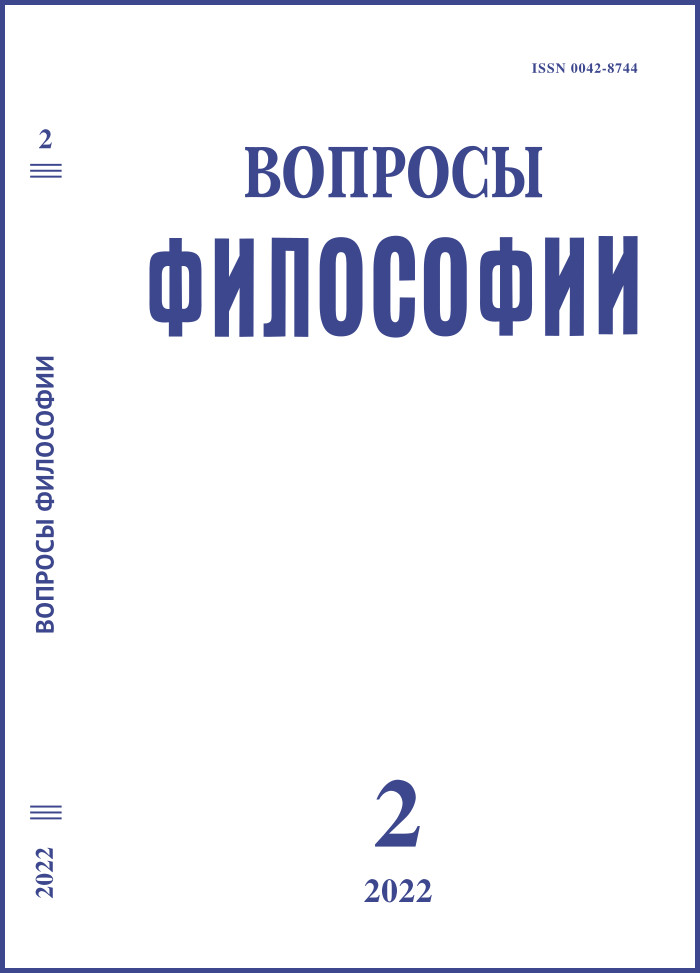Evolutionary Approach to Consciousness in Modern Philosophy and Interdisciplinary Studies
DOI:
https://doi.org/10.21146/0042-8744-2022-2-106-116Abstract
Experiencing, awareness, and being conscious of the subjective experience are familiar to everyone and invariably bear the stamp of subjectivity. This makes the concept of consciousness one of the most problematic in modern science; insofar as there is no satisfactory definition of human consciousness that has been developed yet. This article reviews the most popular approaches to the definition of consciousness in modern philosophy and cognitive sciences. Our study continues the tradition of the Russian activity-based approach in studying consciousness, thus the greatest attention is paid to studies that consider consciousness in the context of interaction with the world and the culture. The authors consider the latest data of anthropology and neuroscience in order to find the features that distinguish human consciousness from the other forms of subjective reality, which are present in the other species. Based on the provided analysis, the authors propose to define human consciousness as a characteristic ability of a human to control their actions at the level of intentions, which should be mastered during the life. Therefore, it becomes possible to distinguish particular features of the human consciousness from other forms of subjective reality and to show the logic of the evolutionary development of subjective reality. This result can become a foundation for further research on how to identify most common subjective states of human with the corresponding activity of the neural system.
Published
Versions
- 2025-02-06 (2)
- 2022-02-28 (1)

